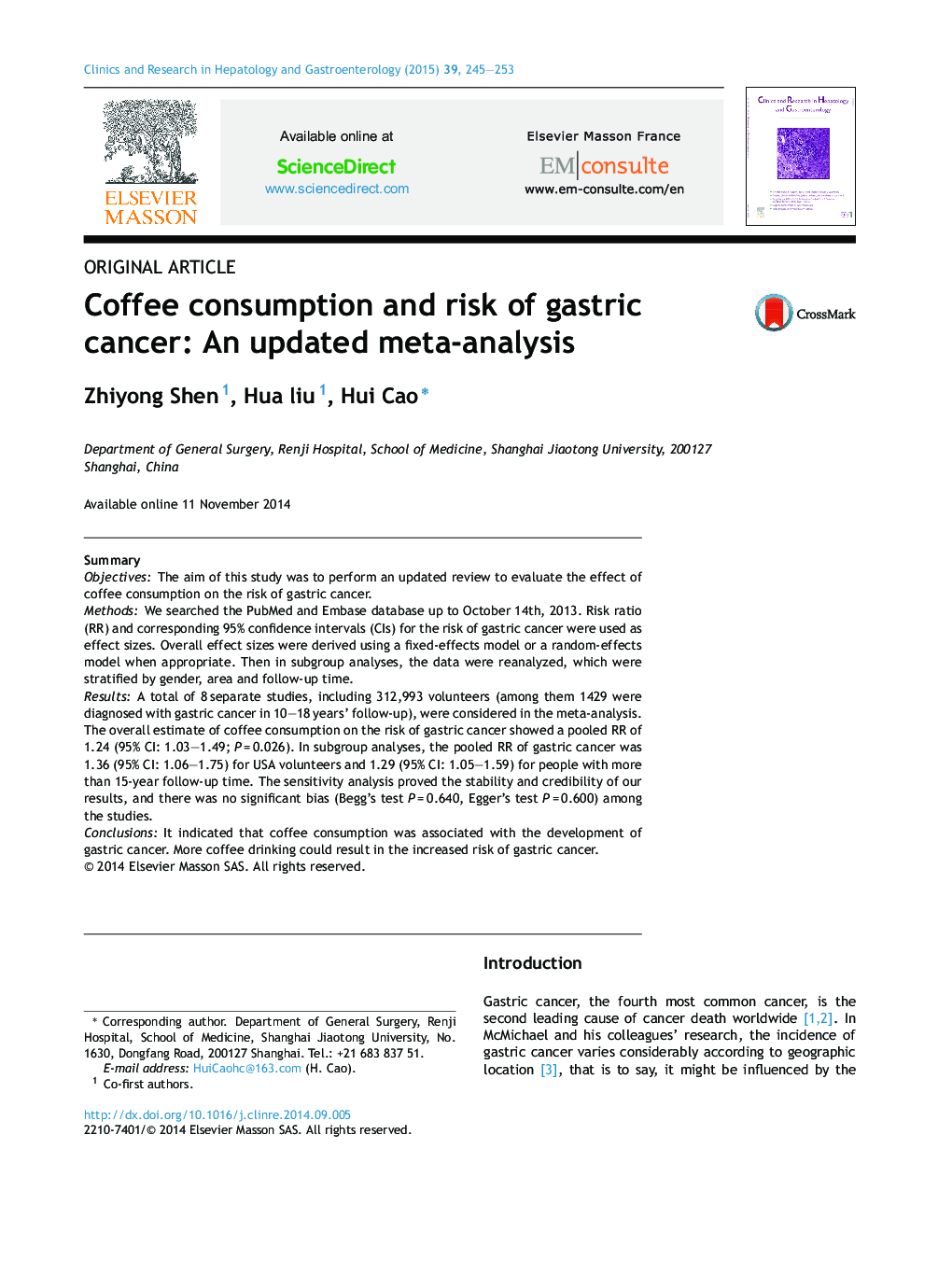| Article ID | Journal | Published Year | Pages | File Type |
|---|---|---|---|---|
| 3286175 | Clinics and Research in Hepatology and Gastroenterology | 2015 | 9 Pages |
SummaryObjectivesThe aim of this study was to perform an updated review to evaluate the effect of coffee consumption on the risk of gastric cancer.MethodsWe searched the PubMed and Embase database up to October 14th, 2013. Risk ratio (RR) and corresponding 95% confidence intervals (CIs) for the risk of gastric cancer were used as effect sizes. Overall effect sizes were derived using a fixed-effects model or a random-effects model when appropriate. Then in subgroup analyses, the data were reanalyzed, which were stratified by gender, area and follow-up time.ResultsA total of 8 separate studies, including 312,993 volunteers (among them 1429 were diagnosed with gastric cancer in 10–18 years’ follow-up), were considered in the meta-analysis. The overall estimate of coffee consumption on the risk of gastric cancer showed a pooled RR of 1.24 (95% CI: 1.03–1.49; P = 0.026). In subgroup analyses, the pooled RR of gastric cancer was 1.36 (95% CI: 1.06–1.75) for USA volunteers and 1.29 (95% CI: 1.05–1.59) for people with more than 15-year follow-up time. The sensitivity analysis proved the stability and credibility of our results, and there was no significant bias (Begg's test P = 0.640, Egger's test P = 0.600) among the studies.ConclusionsIt indicated that coffee consumption was associated with the development of gastric cancer. More coffee drinking could result in the increased risk of gastric cancer.
